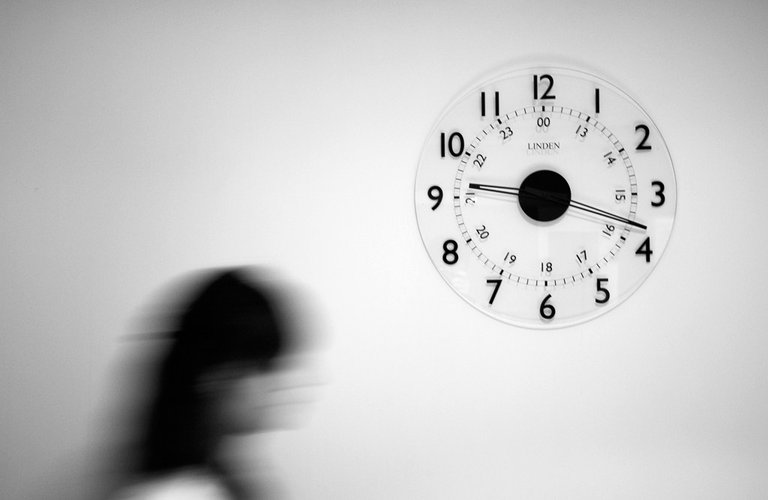[Korean version: 아침 운동 vs. 저녁 운동]

Should I exercise in the morning, or at night? Those people who exercise must have this kind of concern at least once. Whether you are a beginner or have been exercising for a long time, you may have always wondered when it would be the best time for you to exercise. The belief that there is a time of the day most effective for exercise comes from the notion that each individual must have his or her own physical rhythm. In fact, many physiological features such as body temperature, blood pressure, and metabolism change over time in a certain period. Moreover, life patterns such as the time for waking up, working hours and sleeping time heavily affect our exercise habits.
All things considered, it is hard to argue that there is an absolute best time of the day for exercising. Going straight to the point, it is most important to choose a regular exercise time to improve the performance and effectiveness, whether it is in the morning or afternoon. This is because the body will be in the best condition to exercise, once it becomes a habit and becomes adapted.

Thus, the answer to the question, ‘when will be the best time to exercise?’ can only be made by the own individual. The clue to such answers will be provided below as the characteristics of exercise by time is explained.
Pros and Cons of Morning Workout
Morning is the time of day when metabolism and energy consumption is the slowest. Normally, metabolism gradually increases over three hours, but if you work out straight after waking up, the level increases to normal rate much faster. This raises the metabolism which had decreased while sleeping, thus relatively burning more calories than other times. Hence morning workouts are better for people who seek to lose weight. Moreover, it is easier to keep up the workout habit since you would not be interrupted with other plans in the evening. American Council on Exercise (ACE) have reported that a person who exercises in the morning tend to be more regular and consistent than those who exercise at night.
Of course, there are disadvantages to morning workouts. Upon waking up, the joints and muscles are stiffened. Also, due to the low temperature and body temperature, you need to spend more time in stretching and warming up. Considering these factors, it is not easy to pursue hardcore workouts in the morning. Moreover, if you suffer with high blood pressure and diabetes, you should avoid exercising in the morning as your blood pressure or blood sugar level can be unstable in the morning. If you intend to do so, be sure to have proper warm-up exercise.

Pros and Cons of Night Workout
Michael Smolensky, a professor at the Department of Bioengineering at University of Texas, have investigated and came up with the result that a person’s strength is the strongest between 2 to 6 p.m. In addition, in the evening, people would have less risk of getting injured as their joints and muscles become 20% more flexible than in the morning. With the relaxed joints and muscles, it is also suitable to pursue intense workout. In an experiment conducted on professional athletes, the performance level was the highest in the afternoon. Studies show that soccer players have the fastest speed and best endurance at around 5 p.m., and swimmers had their best records early in the evening.
The disadvantages to evening workouts is that the workout schedule can be broken due to several meetings. Considering the importance of steady exercise at a certain time, these external factors can have a profound impact on the performance and effectiveness of exercise. Furthermore, exercising too late in the evening can cause sympathetic nerves to get excited and lead to awakening, thus preventing you from getting a good sleep. It is a good idea to complete the exercise two or three hours before bedtime. Diabetic patients should especially be careful because late night exercises can cause hypoglycemia in their sleep.
There is one thing to keep in mind. The beneficial effects of exercise above can only be achieved, provided that the workouts are consistent with their timing. Therefore, the answer to ‘when is the best time to exercise’ is to set a time for exercising and regularly working out at that time.
References
- 송영규. (2010). 피트니스가 내 몸을 망친다. 위즈덤하우스.
- Peak performance: Best time of day to exercise. (2018). Retrieved from https://www.joe.ie/fitness-health/peak-performance-best-time-of-day-to-exercise-23814
- 수피. (2014). 헬스의 정석: 종합편. 롤링다이스.
- Michael Smolensky., Lynne Lamberg. (2001). The Body Clock Guide to Better Health: How to Use your Body’s Natural Clock to Fight Illness and Achieve Maximum Health. Holt Paperbacks.
- Chtourou, H., Hammouda, O., & Souissi, H. (2012). Diurnal Variations in Physical Performances Related to Football in Young Soccer Players. Retrieved from https://www.ncbi.nlm.nih.gov/pmc/articles/PMC3445640"
- C. Baxter., T. Reilly. (1983). Influence of time of day on all-out swimming. Retrieved from https://www.ncbi.nlm.nih.gov/pmc/articles/PMC1859021/
Good post @miri.choi I honestly do not believe that there is a specific schedule for exercise but it depends more on the person in how he / she is at certain times of the day to perform it. Other factors must be taken into account, such as the state of mind or health with which said person possess.
Hi @escobar663, thank you for taking the time to read my post :)
Congratulations @miri.choi! You have completed the following achievement on the Steem blockchain and have been rewarded with new badge(s) :
Click here to view your Board
If you no longer want to receive notifications, reply to this comment with the word
STOP